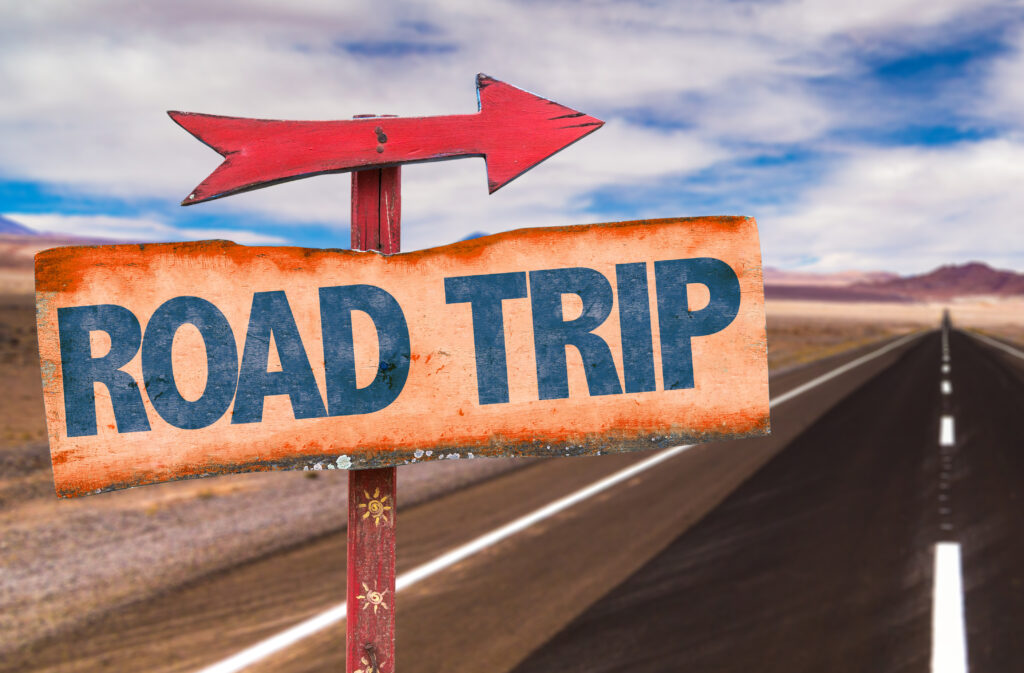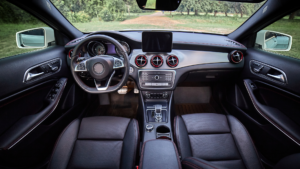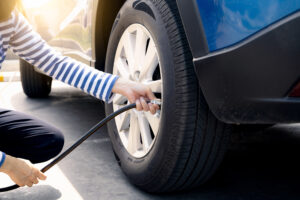A long road trip can be an adventure, a chance to explore new places, and an opportunity to create lasting memories. However, without proper preparation, it can quickly turn into a stressful and exhausting experience. Whether you’re embarking on a cross-country journey or a weekend escape, careful planning ensures a smoother ride, fewer unexpected hiccups, and a more enjoyable experience overall.
From getting your vehicle road-ready to packing smart and planning rest stops, this guide covers everything you need to do before hitting the road.
Getting Your Vehicle Road-Trip Ready

A well-maintained car is essential for a smooth and safe road trip. The last thing you want is to be stranded on the highway due to a preventable mechanical failure.
Perform a Full Car Inspection
Before heading out, make sure your vehicle is in top condition by checking the following:
- Oil and Fluids: Check and top off engine oil, transmission fluid, brake fluid, coolant, windshield washer fluid, and power steering fluid. If you’re close to your next oil change, get it done before leaving.
- Tires and Pressure: Inspect all four tires (plus the spare) for proper inflation and tread depth. Underinflated or worn-out tires can reduce fuel efficiency and increase the risk of blowouts.
- Brakes: Test your brakes to ensure they aren’t making unusual noises or feeling sluggish. If you notice any issues, get them checked by a mechanic.
- Battery Life: A weak battery can leave you stranded, so check its charge and ensure the terminals are clean and secure.
- Lights and Wipers: Test headlights, brake lights, turn signals, and interior lights. Replace worn-out windshield wipers if they leave streaks.
If you’re not comfortable checking these yourself, take your car to a trusted mechanic for a pre-trip inspection.
Prepare an Emergency Kit
No matter how well-maintained your car is, emergencies can still happen. Keep a well-stocked emergency kit that includes:
- Jumper cables
- A spare tire, jack, and lug wrench
- A flashlight with extra batteries
- A portable air compressor
- Road flares or reflective triangles
- A basic tool kit
- Extra motor oil and coolant
- A first-aid kit
- Blankets and non-perishable snacks
Planning Your Route and Stops

Even if you have a general destination in mind, mapping out a route with planned stops can prevent unnecessary delays and frustration.
Use Navigation Apps Wisely
Apps like Google Maps, Waze, and Roadtrippers are great for planning routes, avoiding traffic, and discovering interesting attractions along the way. However, it’s smart to bring a physical map or print out directions as a backup in case of signal loss in remote areas.
Identify Rest Stops and Gas Stations
Long drives require frequent breaks for food, fuel, and stretching. Plan to stop every two to three hours to prevent fatigue and improve circulation.
Look up:
- Gas stations in remote areas where fuel stops are limited.
- Well-reviewed rest stops with clean bathrooms and food options.
- Scenic viewpoints or short hikes to break up long drives.
If you’re traveling with kids or pets, find pet-friendly rest areas and kid-friendly stops to keep everyone comfortable and entertained.
Check Weather and Road Conditions
Road conditions can change quickly, especially in mountainous areas or during winter. Check weather forecasts and road closures before departing. If heavy storms or wildfires are expected, consider rerouting or delaying the trip.
Packing Efficiently for a Comfortable Drive

Overpacking can clutter your car and make it harder to access essentials. Packing strategically helps keep things organized and maximizes space.
Clothing and Essentials
Pack layered clothing suited for the climate you’ll be traveling through. Even in summer, temperatures can drop significantly at night, so bring a jacket or sweater.
Other must-haves:
- Sunglasses for glare reduction
- Comfortable shoes for driving and rest stops
- Travel pillow and blanket for naps
- Reusable water bottles to stay hydrated
- Chargers and power banks for devices
Snacks and Drinks
Having food on hand reduces unnecessary stops and prevents hunger-related crankiness. Pack a mix of healthy snacks and treats, such as:
- Protein bars, nuts, and dried fruit
- Fresh fruit like apples or grapes
- Cheese sticks or yogurt (stored in a small cooler)
- Pre-made sandwiches or wraps for easy meals
- Reusable coffee cup or thermos for long hauls
Keep a trash bag and wet wipes handy for easy clean-up.
Staying Safe and Alert on the Road

Long drives can lead to fatigue, which is one of the biggest dangers for road-trippers. Staying alert and practicing good driving habits ensures a safer journey.
Preventing Driver Fatigue
Drowsy driving is as dangerous as drunk driving. To stay sharp:
- Get at least 7-8 hours of sleep before your trip.
- Switch drivers every 2-3 hours if traveling with someone else.
- Take short breaks for stretching and fresh air.
- Listen to podcasts, audiobooks, or upbeat music to stay engaged.
- Avoid heavy meals before driving, as they can make you sluggish.
If you feel your eyelids getting heavy, your reaction time slowing, or your head nodding, pull over immediately and take a power nap.
Night Driving Precautions
If driving after dark, make sure to:
- Dim dashboard lights to reduce eye strain.
- Use high beams when on dark roads but switch to low beams for oncoming traffic.
- Avoid looking directly at bright headlights from other cars.
- Wear anti-glare glasses if needed.
Some drivers experience night blindness or difficulty seeing in low light. If this applies to you, try to limit driving at night or take turns with a co-driver.
Handling Unexpected Situations on the Road

Even with the best planning, things don’t always go smoothly. Knowing how to handle common road trip issues can help prevent stress.
Dealing With Car Troubles
If your car breaks down:
- Pull over to a safe location away from traffic.
- Turn on hazard lights and place road flares or reflective triangles behind your car.
- If you have roadside assistance (AAA, insurance provider, or a car manufacturer plan), call them for help.
- Stay inside your car with doors locked if stranded in an unsafe area.
Managing Traffic Delays and Detours
Traffic is inevitable on long trips, especially around big cities. Check real-time traffic updates and consider alternative routes when congestion is heavy. If stuck in traffic for long periods, stay patient, use the time for an audiobook or podcast, and take deep breaths to stay calm.
TL;DR – Road Trip Preparation Checklist
- Get your car road-trip ready: Check oil, brakes, tires, and lights. Pack an emergency kit.
- Plan your route and stops: Use navigation apps, find rest stops, and check weather conditions.
- Pack smart: Bring layered clothing, sunglasses, chargers, snacks, and a trash bag.
- Stay alert and well-rested: Take breaks, switch drivers when possible, and avoid drowsy driving.
- Be prepared for unexpected events: Have a plan for car troubles, traffic, and bad weather.
With the right preparation, your road trip can be a smooth, stress-free, and fun adventure. Safe travels!






